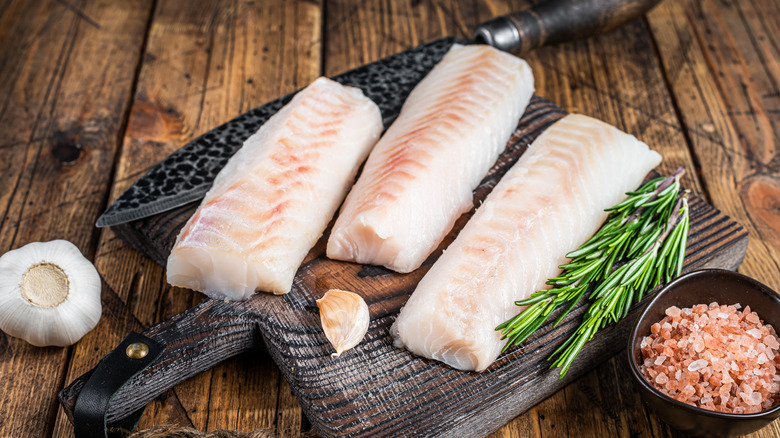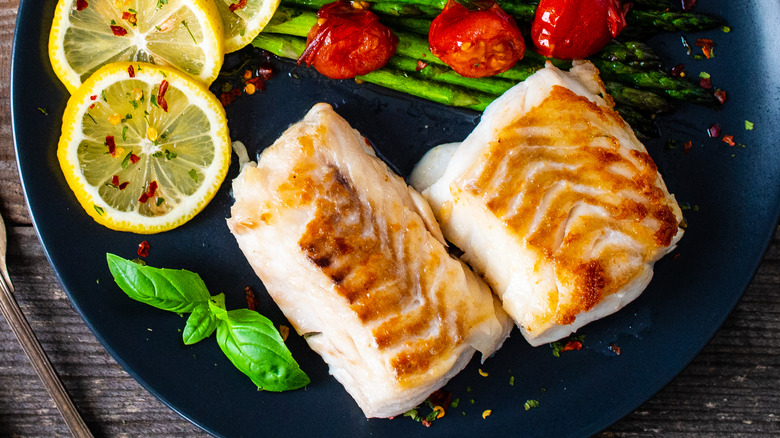Read This Before Purchasing Cod
Cod has easily earned its reputation as an amazing fish. Thought Co. reports that indigenous peoples throughout North America relied on this type of seafood for generations, and Atlantic cod helped provide a food source for the first pilgrims. As fishing technology improved, new methods came into vogue, and by the 1950s, fishermen used gillnets and draggers to drastically increase their haul.
As times change, this once-plentiful animal now has a tough time ahead of it. An article published in The Guardian in 2019 outlined how changing water temperatures and overfishing had caused the ocean's stock of cod to plummet drastically, putting the fish in grave peril. One year later, Euronews reported that despite the best efforts to raise the species' population, the animal's numbers took a major nosedive due to massive reproductive failures. As the oceans warm, hypoxia caused by algae blooms has also started to suffocate the cod in once-ideal waters. While the prognosis looks grim for the fish, you don't have to completely give up cod in order to save the environment and the species.
A sustainable cod option
If you can't imagine a life without fish and chips, the Pacific Ocean provides some hope in the form of sustainable cod. The Healthy reports that anyone concerned with the collapse of cod as a species needs to immediately stop purchasing Atlantic-raised cod. Instead, buyers should opt for cod sourced from the Pacific Ocean and particularly look for the Alaskan variety. Alaskan cod gets raised in a very sustainable manner and has a thick texture that can resemble crab meat.
According to Fish Choice, Alaskan cod doesn't have the fine white color of its Atlantic cousin. If you do end up finding this ingredient at your local supermarket, expect Pacific cod caught on the West Coast of the U.S. to get sold fresh, while Alaskan cod gets frozen before making it to retailers. Next time you feel like enjoying this mild fish, make sure you source the ingredient ethically and look for the Pacific-raised variety next time you hit the grocery store. With a bit of care, your choices can help prevent a full-scale collapse of a species and bring home a delicious variety of fish you might otherwise never encounter.

